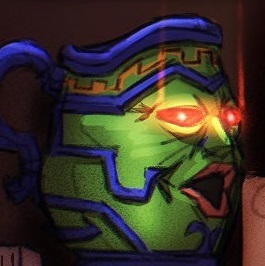Hello comrades, it's time for our first discussion thread for The Will to Change! Please share your thoughts below on the first two sections of the book. There's quite a lot to talk about between hooks' discussion of masculinity discourse within feminist circles, the ways both men and women uphold patriarchy, and the near universal experience of men being forced to suppress their rich emotional worlds from a young age. I'll be posting my thoughts in a little bit after I'm done with work.
If you haven't read the book yet but would like to, its available free on the Internet Archive in text form, as well as an audiobook on Youtube with content warnings at the start of each chapter, courtesy of the Anarchist Audio Library, and as an audiobook on our very own TankieTube! (note: the YT version is missing the Preface but the Tankietube version has it) Let me know if you'd like to be added to the ping list!
Our next discussion will be on Chapters 2 (Understanding Patriarchy) and 3 (Being a Boy), beginning on 12/4.
Thanks to everyone who is or will be participating, I'm really looking forward to hearing everyone's thoughts! ![]()

I started with the TT version for the preface and then switched to the other one. I like both though.
I've listened up to the third chapter now and love the book so far. I won't discuss points from later chapters in this post.
I think what hooks does really well is uniquely presenting important feminist theory in a way, that makes the facts about hard truths and complex power structures, that she hits us with, both easy to grasp and easy to accept. She accomplishes this effect by distilling years of experience from working closely with men in lectures and seminars into carefully choosen anecdotes, each designed to awaken your empathy and immediately open your eyes to a reality larger than the particular incident mentioned. This makes for an exciting and easy to follow style, while simultaneously creating the "will to change" in the reader.
Often these anecdotes describe what Paulo Freire in the Pedagogy of the Oppressed might call limit-situations, situations in which we encounter limits to our freedom, which are dialectically accompanied by the possibility for limit-acts: going beyond our former limitations. In this way, hooks applies a tried and true pedagogy to a difficult subject. Her goal is not to impress or intimidate her audience with her deep knowledge, though she doubtlessly could, but to help them change them for the better. She offers us the opportunity to empathically follow along with these limit-situations in order to learn from them and translate them into action (limit-acts) in our own lives. The subject of this book is the reader more than the theory, because it is meant to affect change in them.
That's why this book seems "entry level" and easy. Not because the subject matter is generally agreeable among a leftist cis male audience, but because her pedagogy is just that good. Writing low-threshold is actually not easy.
I often myself found thinking about my own live, my own childhood. What were the moments in which I learned patriarchy? Where did I first run against a wall of expectations? Was it at home? In school? How did I react? What believes did I form and which behavioral patterns? Do I still hold on to some of them?
I've been a feminist and known about patriarchy for a long time yet I've recently been struggling to stay soft and in touch with my emotions in stressful situations or when it comes to heavy topics. I'm excited about the opportunity to unlearn some toxic assumptions. And I hope, that engaging with the book might help me to engage with my own past and maybe heal some inevitable emotional scars from growing up in a patriarchal society.
I too share the same hopes with this book, the way she speaks about men suppressing their own feelings to fit the image of patriarchy resonates with societal ideals of attractiveness. I think on the base level, what would get men to change would be “love” or (acceptance?) of this vulnerability.